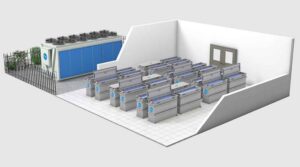Purdue a focus on low GWP refrigerants
18th May 2014
USA: The search for low GWP refrigerants will be the subject of one of the lead papers at this summer’s conferences at Purdue University, Indiana.
Mark McLinden’s plenary paper “Optimizing the Selection of Low-GWP Refrigerants: Limits, Possibilities, and Tradeoffs” will explain the work of the National Institute of Standards and Technology in identifying potential low GWP gases.
Purdue’s International Conferences take place every two years and feature hundreds of papers from world-renowned authors.
Organised by faculty from Purdue’s Ray W Herrick Laboratories, the event takes place this year between July 14-17 and includes three parallel conferences in one: the International Compressor Engineering Conference, International Refrigeration and Air Conditioning Conference and the International High Performance Buildings Conference.
The focus of the primarily on research and advanced development of components and systems and are co-sponsored by the Ray W. Herrick Laboratories, ACCA, AHRI, ASHRAE, IIR, the USNCR/IIR and the USGBC.
In 2012 the US government’s National Institute of Standards and Technology (NIST) developed a new computational method for identifying potential low GWP refrigerants. Mark McLinden’s paper describes how NIST researchers explored the potential refrigerants through two distinct, but complementary, approaches. Firstly they defined the limits of what is allowed by thermodynamics, without being constrained by the set of presently known fluids. In the second approach, the team screened over 56,000 small molecules for GWP, flammability, stability, toxicity, and critical temperature. The COP in several different refrigeration cycles and its ultimate efficiency were also considered as an additional screening criteria.
The end result is not thousands of low-GWP candidates, but a handful. And even this limited number presents tradeoffs. According to NIST, it may be necessary to re-examine the requirements for an A1 refrigerant, namely non-flammability and a very low toxicity, as well as absolutely zero ozone depletion potential. It may also be necessary to consider modifications to the simple vapour compression cycle.
For more information on the conference visit the website here.







